Are you looking for a loyal companion to join your family? Chihuahuas are becoming an increasingly popular breed of dog, due to their cute size and sassy attitude.
When selecting a Chihuahua, one of the first things people find themselves wondering is about their ears – do they have floppy ears like some other breeds or do they stand up straight on top of their heads?
If you’re curious how these canine cuties will look with their ears when they join your family, read on as we take a closer look at the Chihuahua’s floppy ear status!
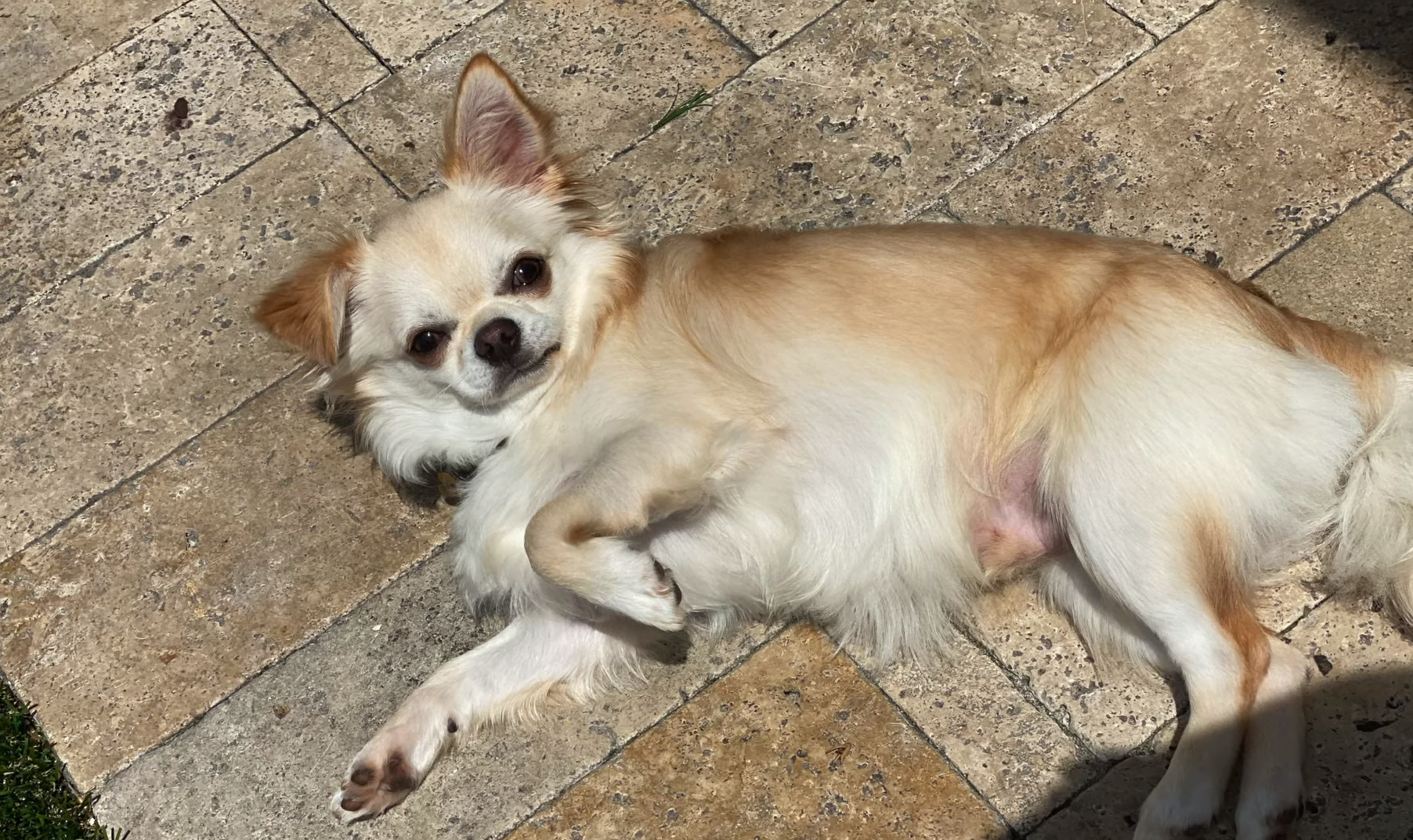
Are Chihuahuas born with floppy ears?
The answer to this question is yes and no. Some Chihuahuas are born with a set of naturally floppy ears, while others have ears that stand up right away. It really just depends on the individual pup and how its ears develop over time.
Reasons my Chihuahua’s ears are floppy
Your Chihuahua is a newborn
If your Chihuahua is just a newborn, their ears may still be in the process of standing up. Typically, their ears should stand up between 8 and 12 weeks old. If they’re not by then, you can consult with your vet to see if there’s anything else going on.
Save Big On Dog Essentials!
In rare cases, a Chihuahua may be born with a disorder called “floppy ears”, which can cause their ears to flop down and never stand up. This is generally caused by genetics, so if your pup’s parents also had floppy ears, there’s a chance that your pup could too.
Your Chihuahua is still a puppy
If your Chihuahua is still a puppy, their ears may be just not finished standing up yet. This can happen when the pup is teething – as the bones in their ear cartilage are still forming and growing, they may have difficulty standing up. [1]
The effect of teething on Chihuahua ears
Teething can cause the muscles and bones in your Chihuahua’s ears to be softer than usual, making it more difficult for them to stand up. This is usually only a temporary problem and should resolve itself as your pup grows older.
Chihuahua Breeding and Genetics
Some Chihuahuas are more prone to floppy ears due to their genetics. If you adopted a purebred pup, their parents may have had floppy ears, so there’s a chance your pup could too.
However, if you are adopted from a shelter or rescue organisation, it will be harder for you to know why your pup has floppy ears.
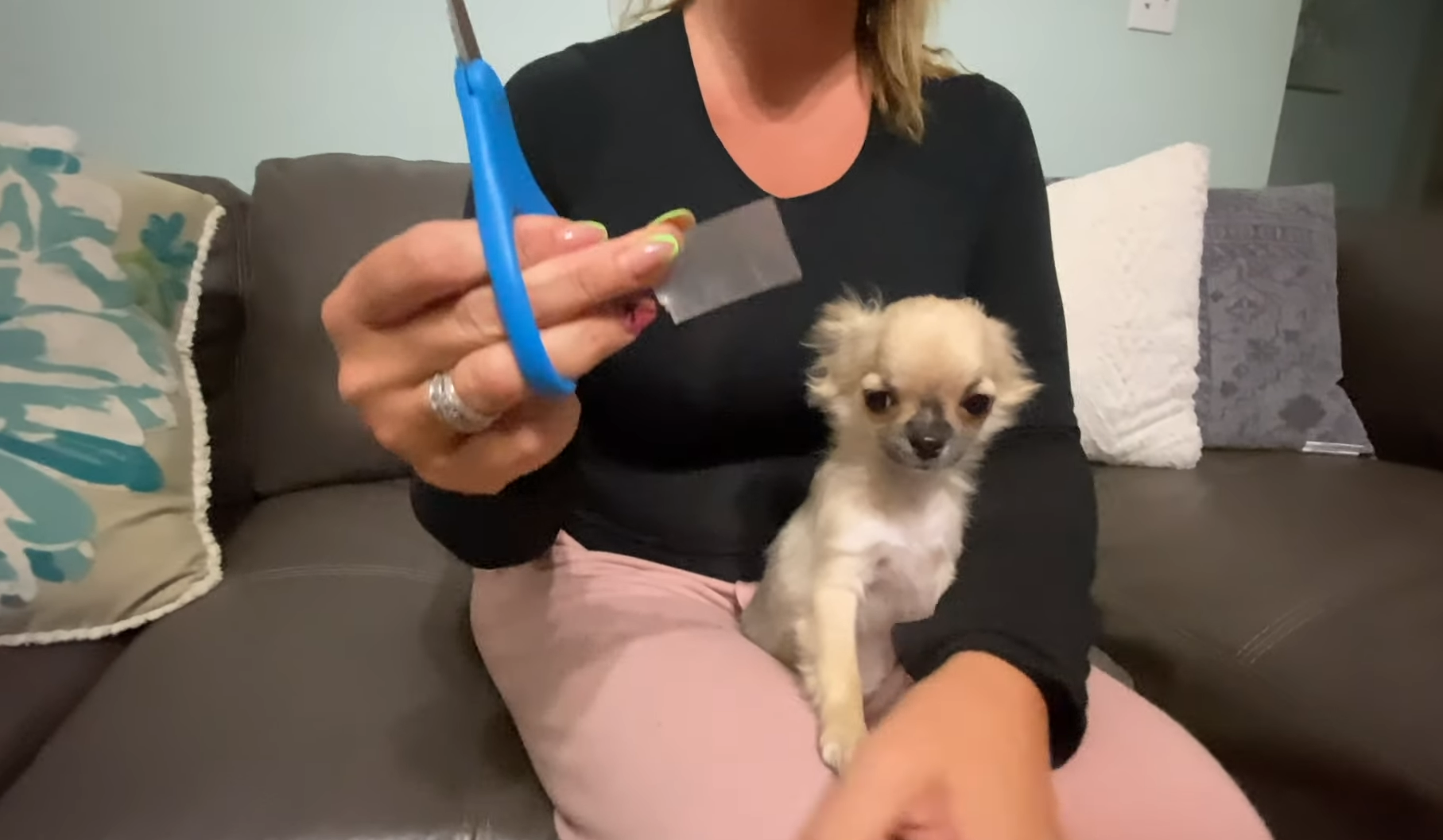
You just got unlucky
In some cases, there is no clear reason why a Chihuahua’s ears are floppy – you may have just gotten unlucky.
This doesn’t mean that your pup won’t be able to stand up their ears over time, however. It’s important to note that floppy ears don’t affect the health of your pup in any way.
Should I straighten a Chihuahua’s floppy ears?
It’s important to note that there is no need to try and straighten your Chihuahua’s floppy ears. This can be a very uncomfortable process for your pup and can cause them pain, so it should be avoided if possible.
Additionally, trying to force their ears up could cause permanent damage, which is something you will want to avoid.
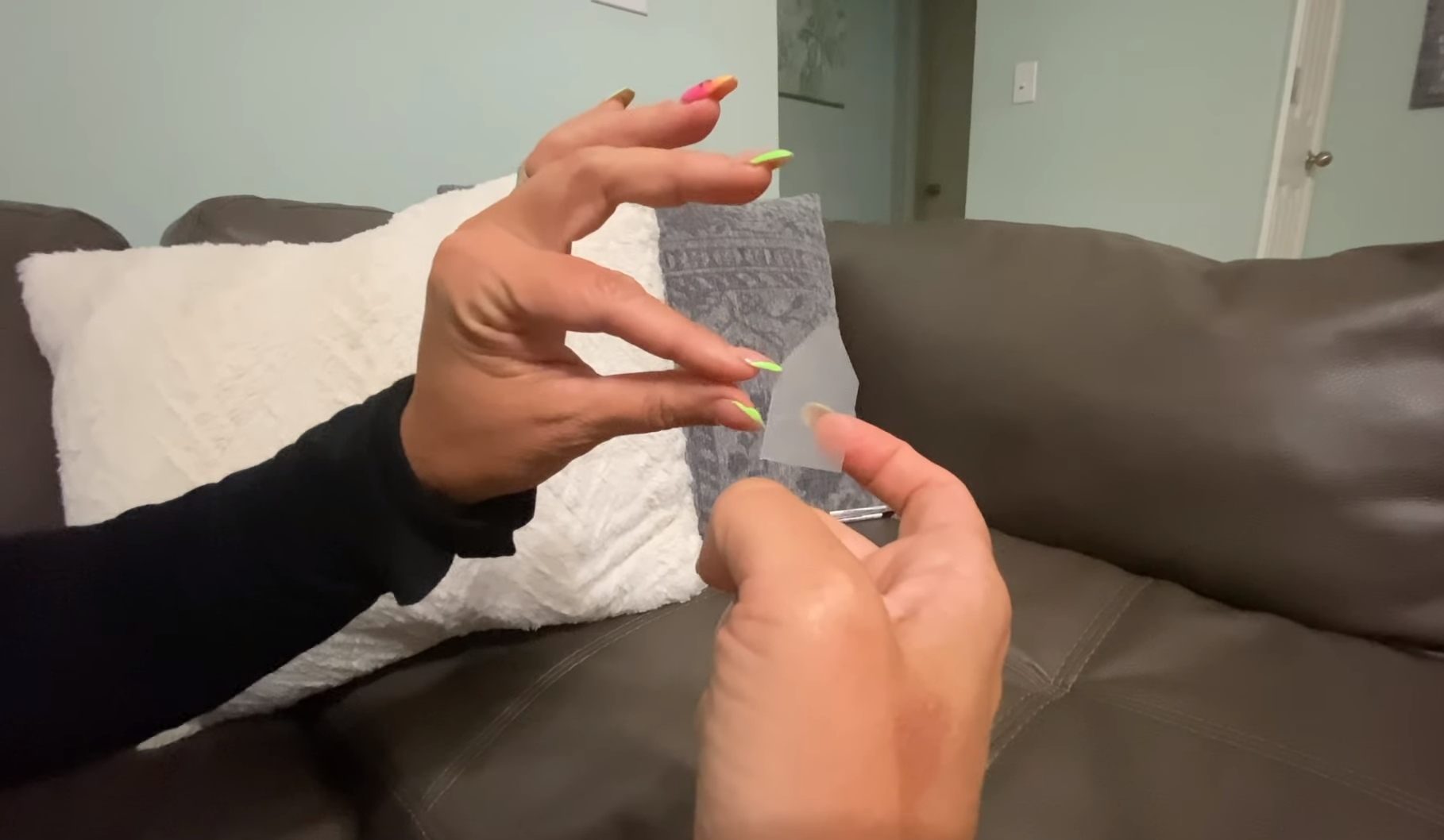
How to make a Chihuahua’s ears stand up?
Taping Chihuahua’s ears
If you’re looking for a way to make your puppy’s ears stand up, one option is to try taping them.
This involves using medical-grade tape to hold their ears in the upright position – think of it as an ear helmet! You can do this on your own or take your pup to a groomer who can help with the process.
Calcium Supplements
Another option is to try providing your pup with calcium supplements. This can help strengthen the muscles and bones in their ears, allowing them to stand up better over time.
Fresh Organic Diet
You can try switching your pup to a fresh organic diet. This will provide them with the essential nutrients they need to keep their bones strong and healthy, which should help their ears stand up better.
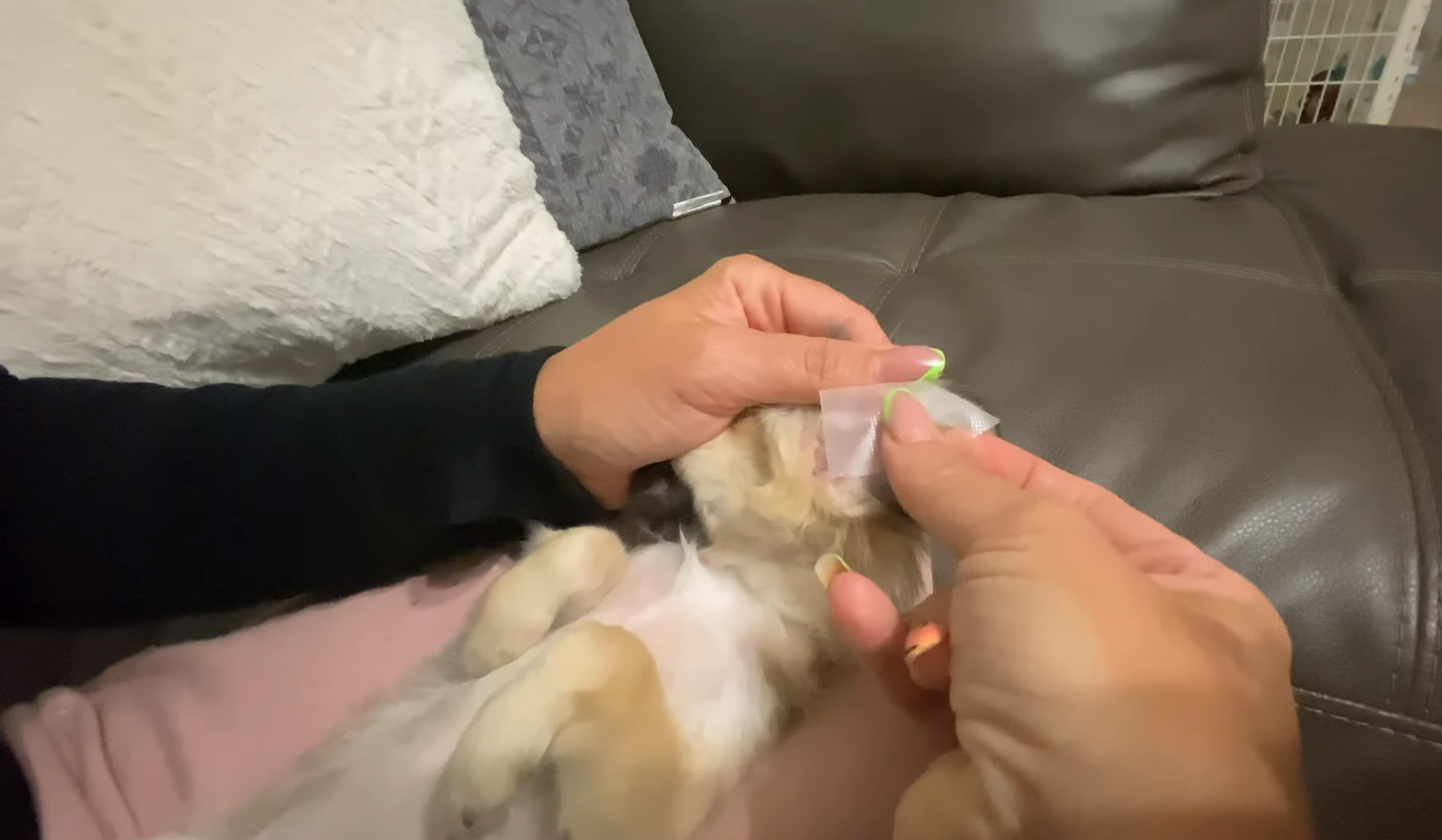
Massaging your Chihuahuas ears
You can also try massaging your puppy’s ears. This will help stimulate blood flow to the area, which could help with their ear standing up. [2]
Reducing stress and anxiety
It’s also important to make sure that your pup is not overly stressed or anxious, as this can affect the muscles and bones of their ears. Make sure you provide a quiet and calming environment for them so that they don’t feel too overwhelmed.
Avoid harmful foods
Be sure to avoid giving your pup any foods or treats that could be harmful. Foods like chocolate and certain fruits can cause damage to their ears, so it’s important to make sure you are feeding them the right things.
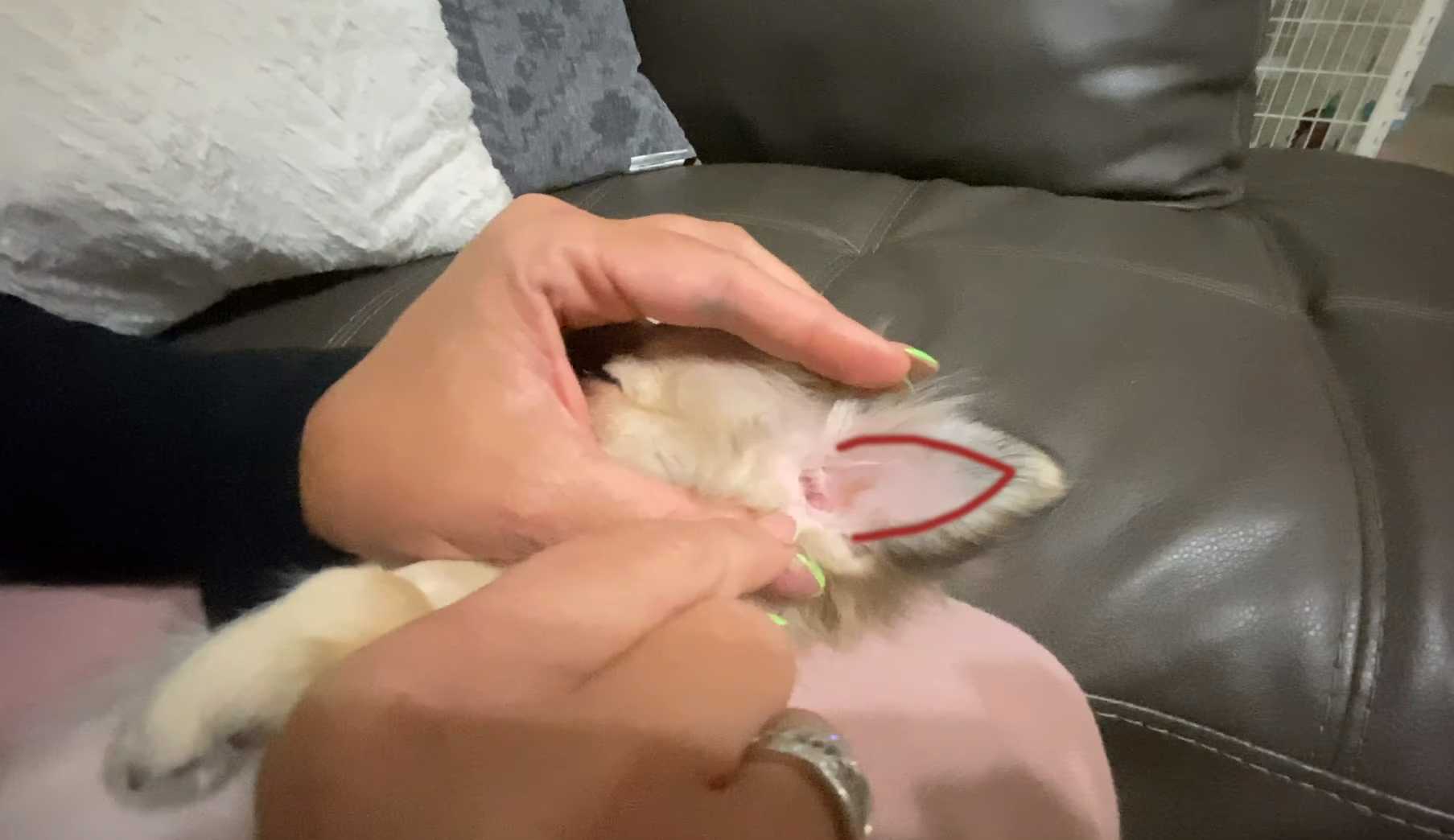
FAQ
Do Chihuahua ears stay floppy?
It depends on the individual pup – some Chihuahuas are born with floppy ears, while others may have ears that stand up right away.
How can I make my Chihuahua’s ears stand up?
You can try taping them, providing calcium supplements, switching to a fresh organic diet, massaging their ears, reducing stress and anxiety, and avoiding harmful foods.
Is it normal for Chihuahuas to have floppy ears?
Yes, it is perfectly normal for some Chihuahuas to have floppy ears. It simply depends on the individual pup and their genetics.
Do floppy ears affect health?
No, having floppy ears does not affect the health of your pup in any way. It is simply a cosmetic issue that can be addressed if desired. However, it’s important to avoid using products or methods that could cause pain or discomfort for your pup.
What does it mean when a Chihuahua’s ears are down?
This is usually an indication that the pup is not feeling well or is in some sort of distress. If this happens to your pup, it’s important to take them to a vet for a check-up.
What Chihuahua mix has floppy ears?
The Chug (Chihuahua/Pug mix), the Chizer (Chihuahua/Miniature Schnauzer mix) and the Chiweenie (Chihuahua/Dachshund mix) are all known for having floppy ears.
However, it’s important to note that each pup will be different, so you may get a pup with standing ears even if its parent breeds have floppy ears.
How do I know if my Chihuahua is happy?
If your Chihuahua is happy, they will usually show it through their body language. Signs of a happy pup include wagging tails, soft and relaxed ears, and an overall relaxed demeanour.
A smile on their face can also be indicative that they are content. If you notice any of these signs when interacting with your pup, then chances are they’re feeling good.
Why do my dog’s ears go down when I look at him?
This could be an indication of fear or anxiety in your pup. If this is the case, it’s important to take them to a vet for a check-up and to make sure that they are not feeling overwhelmed.
Additionally, providing them with a calm environment and plenty of positive reinforcement can help them feel more secure.
What is the best way to train my Chihuahua?
It’s important to remember that all dogs learn differently, so it’s important to find a training method that works for your pup. Positive reinforcement is usually the best option, as it encourages good behaviour without causing any stress or discomfort.
Additionally, providing them with plenty of treats and rewards can help keep them motivated and interested in learning.
What is the average lifespan of a Chihuahua?
The average lifespan for a Chihuahua is between 12 and 20 years. However, this can vary depending on their diet, exercise routine, and overall health. It’s important to provide your pup with proper nutrition and plenty of exercise in order to keep them healthy and happy for as long as possible.
What is the best way to care for a Chihuahua?
The best way to care for your pup is to make sure they are getting plenty of exercise, a balanced diet, and regular check-ups at the vet.
Additionally, providing them with a safe and secure environment can help reduce anxiety and stress levels. Grooming their coat regularly will also help keep them looking and feeling their best.
What is the best way to bond with a Chihuahua?
The best way to bond with your pup is to spend quality time together. Taking them for long walks, playing games, teaching them tricks, and providing plenty of cuddles will all help deepen your connection.
Additionally, positive reinforcement can also help encourage good behaviour and create a strong bond between you and your pup.
What are the common health problems in Chihuahuas?
The most common health problems for Chihuahuas include hypoglycemia, dental issues, heart murmurs, and joint problems. It’s important to keep an eye on your pup’s behaviour for any signs of illness or discomfort.
If you notice anything out of the ordinary, it’s best to take them to the vet for a check-up. Additionally, providing them with plenty of exercise and a balanced diet can help keep them feeling their best.
How do I know if my Chihuahua is the right size?
Chihuahuas typically measure between 6 and 10 inches when fully grown. Additionally, they should weigh anywhere from 5 to 7 pounds depending on their age and breed.
If your pup is larger or heavier than this range, then it’s important to speak with a vet about any potential health concerns.
How do I know if my Chihuahua is too small?
If your pup appears to be smaller than other Chihuahuas of the same age, then it’s best to speak with a vet about potential health concerns.
Additionally, their weight should also be taken into consideration – they should weigh between 5 and 7 pounds when fully grown.
If your pup is significantly smaller or lighter than this range, then it’s time to seek medical advice.
Do Chihuahuas make good family pets?
Yes, Chihuahuas can make great family pets with the right training and care. They are usually loyal companions that enjoy spending time with their owners, as long as they are given plenty of attention and affection.
Additionally, providing them with the right nutrition and exercise can help keep them healthy and happy for many years to come.
Do Chihuahuas need a lot of exercise?
Yes, Chihuahuas require plenty of daily exercise to stay healthy and happy. This includes both physical activities such as walking or running, as well as mental stimulation through games and tricks.
Additionally, providing them with plenty of playtime can help keep their energy levels up and allow them to bond with their owners.
Why do Chihuahuas shake?
Chihuahuas often shake when they are feeling anxious or scared. This is usually an indication that they feel overwhelmed in their current environment. If this happens to your pup, it’s important to provide them with a calm and reassuring atmosphere until they relax again.
Additionally, providing them with plenty of positive reinforcement can also help reduce any anxiety they may be feeling.
Why do Chihuahuas bark?
Chihuahuas may bark for a variety of reasons, such as boredom, anxiety, fear, or excitement. It’s important to observe your pup and look for any potential triggers that might be causing them to bark excessively.
If possible, try to remove the trigger from their environment to reduce the amount of barking they are doing. Additionally, providing them with plenty of exercise and mental stimulation can help keep their energy levels down and reduce the amount of barking.
Do Chihuahuas have floppy ears?
No, most Chihuahuas do not have floppy ears. Instead, they usually have erect ears that remain upright at all times – this is a sign of alertness in the breed.
However, some Chihuahuas may have ears that droop slightly due to genetics or injury. If this is the case, then it’s important to speak with a vet for advice on how best to care for your pup.
Does my Chihuahua need vaccinations?
Yes, it is important to get your Chihuahua vaccinated to protect them from various illnesses and diseases. It’s best to speak with a vet for advice on which vaccines are best suited for your pup and how often they should be administered.
Additionally, providing them with regular check-ups can help ensure that they stay healthy and happy for many years to come.
Does my Chihuahua need to be spayed or neutered?
Yes, it is recommended that all Chihuahuas be spayed or neutered in order to reduce the risk of health and behavioural issues.
Additionally, this can also help reduce the risk of unwanted pregnancies and potential aggression towards other animals. It’s important to speak with a vet for advice on when and how to safely spay or neuter your pup.
Does my Chihuahua need regular grooming?
Yes, it is important to groom your Chihuahua regularly to keep their coat and skin healthy. This includes brushing their fur at least once per week and bathing them every few months.
Additionally, trimming their nails regularly can help reduce any pain or discomfort they may be feeling as their nails grow. It’s important to speak with a vet for advice on the best grooming routine for your pup.
Do Chihuahuas need a lot of attention?
Yes, Chihuahuas usually require plenty of attention from their owners. They can become anxious or depressed if they are not given enough love and affection regularly.
Additionally, providing them with plenty of positive reinforcement during training sessions can also help keep them feeling happy and secure in their environment.
Does my Chihuahua need to be socialised?
Yes, it is important to socialise with your pup so they learn how to interact with other animals and people. This can help reduce any potential aggression or anxiety they may feel when meeting new faces.
Additionally, enrolling them in obedience classes or taking them for walks in public places can also help with their socialisation.
Do Chihuahuas have any special dietary needs?
Yes, it is important to provide your Chihuahua with a balanced and nutritious diet. This includes providing them with the right amount of protein, carbohydrates, fats, vitamins, and minerals.
Additionally, it’s best to speak with a vet for advice on which foods are best suited for your pup’s specific nutritional needs.
Do Chihuahuas need regular tooth care?
Yes, it is important to provide your pup with regular dental care to prevent any potential oral health issues. This includes brushing their teeth at least twice a week and providing them with dental chews or treats that can help remove plaque and tartar buildup.
Additionally, visiting the vet for professional cleanings a few times a year can also help keep their teeth clean and healthy.
Does my Chihuahua need to wear a collar?
Yes, it is important to provide your pup with an identification tag that can help people easily identify them in case they are ever lost.
Additionally, collars can also provide extra support when walking or running if your pup has any mobility issues. It’s best to speak with a vet for advice on the best type of collar for your pup.
Do Chihuahuas have special exercise needs?
Yes, it is important to provide your pup with the right amount and type of exercise to keep them healthy and happy. This includes both physical activities such as walking or running, as well as mental stimulation through games and tricks.
Additionally, providing them with plenty of playtime can help keep their energy levels up and allow them to bond with their owners.
Does my Chihuahua need to visit the vet regularly?
Yes, it is important to bring your pup in for regular check-ups at the vet. This can help detect any potential health issues early on and provide them with the right treatment plan.
Additionally, visiting the vet for vaccinations or other medical procedures can also help keep them healthy and happy.
Does my Chihuahua need a lot of space?
No, Chihuahuas do not require a lot of space. They can easily adapt to smaller living environments such as apartments or condos. However, it’s important to provide them with plenty of exercise and mental stimulation regularly to prevent any boredom or anxiety.
Additionally, providing them with their bed or favourite toy can also help them feel more secure in their environment.
Does my Chihuahua need a crate?
No, a crate is not necessary for your Chihuahua. However, if you plan to travel with them or they have any separation anxiety issues, then providing them with a safe and comfortable place to stay can help reduce their stress levels.
Additionally, it’s important to speak with a vet for advice on the best type of crate for your pup and how to properly train them to use it.
Do Chihuahuas have any special health concerns?
Yes, Chihuahuas can be prone to certain health issues such as obesity, heart disease, and eye problems. Additionally, they are also more susceptible to cold temperatures due to their small size.
It’s important to speak with a vet for advice on how best to care for your pup and which health screenings should be done regularly.
Do Chihuahuas need a lot of training?
Yes, it is important to provide your pup with the right type and amount of training in order for them to develop good habits and behaviours. This includes both basic commands such as sit, stay, and come, as well as socialising them with other animals and people.
Additionally, it’s important to provide them with plenty of positive reinforcement during training sessions to keep them feeling motivated and engaged.
Do Chihuahuas have floppy ears?
No, Chihuahuas do not have floppy ears. They usually have upright, triangular-shaped ears that are set high on their heads. Additionally, their ears can sometimes be slightly folded over at the tips due to their size.
It’s important to speak with a vet for advice on the best way to groom and care for your puppy’s ears.
Do Chihuahuas bark a lot?
Yes, Chihuahuas are known for their tendency to bark frequently. This is usually done as an alert or warning when they sense a potential threat or to get attention from their owners.
Additionally, it’s important to provide them with plenty of positive reinforcement during training sessions and to speak with a vet for advice on how best to manage their barking behaviour.
Do Chihuahuas need regular grooming?
Yes, regular grooming is important for Chihuahuas to help keep their coats clean and healthy. This includes regular brushing, bathing, and trimming of their nails.
Additionally, it’s best to speak with a vet for advice on the best type of grooming products for your pup’s specific needs.
Does my Chihuahua need to be spayed or neutered?
Yes, it is recommended to get your pup spayed or neutered at an early age to prevent any potential health issues or unwanted behaviours.
Additionally, this can also help reduce the number of homeless animals in shelters and provide them with a longer and healthier life. It’s best to speak with a vet for advice on the best time to get your pup spayed or neutered.
Do Chihuahuas make good family pets?
Yes, Chihuahuas can make great family pets as they are loyal, affectionate, and typically very quiet. Additionally, they are relatively small in size and can easily adapt to smaller living environments such as apartments or condos.
It’s important to provide them with plenty of exercise, mental stimulation, and positive reinforcement during training sessions to keep them feeling happy and healthy.
Does my Chihuahua need to wear a sweater in cold weather?
Yes, it is important to provide your pup with a warm and comfortable coat or sweater when temperatures begin to drop. This can help keep them feeling warm and snug during outdoor walks or activities.
Additionally, it’s best to speak with a vet for advice on the best type of clothing for your pup’s specific needs.
Do Chihuahuas need a lot of care and attention?
Yes, Chihuahuas are known for being very loyal and affectionate. As such, they do require plenty of time and attention from their owners. This includes regular playtime, exercise, grooming, training sessions, and more.
Additionally, it’s important to provide them with plenty of positive reinforcement and lots of love to keep them feeling happy and healthy.
Useful Video: Dog Show Grooming: How To Tape Chihuahua Ears
Conclusion
All in all, the answer to the question “Do Chihuahuas have floppy ears?” is quite complex. While some members of the breed may be born with ‘floppy’ ears due to genetics and conformation traits, it is also possible for a Chihuahua’s ears to droop over time due to factors such as growth, injury, infection, or malformation.
Ultimately, each individual Chihuahua has unique structure and characteristics depending on their environment and upbringing. Therefore, if you’re considering welcoming a Chihuahua into your home then it’s important to do your research about the breed to ensure you’re selecting a pup that fits your expectations regarding physical characteristics.
In any case, Chihuahuas are full of personality and no two dogs are exactly alike so we can guarantee you’ll find an adorable four-legged friend regardless! It’s also important to remember that just like other dog breeds, regular vet checkups are essential for maintaining your pup’s health – so don’t forget to book regular appointments at your local veterinarian.
We hope this blog post has helped answer any questions you may have had about the anatomy of Chihuahuas – or at least piqued your curiosity – but as always please feel free to contact us with any added questions or concerns.
References:
- https://www.animalwised.com/my-chihuahua-has-floppy-ears-3857.html
- https://dogleashpro.com/chihuahua/chihuahua-with-floppy-ears/

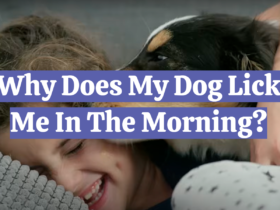



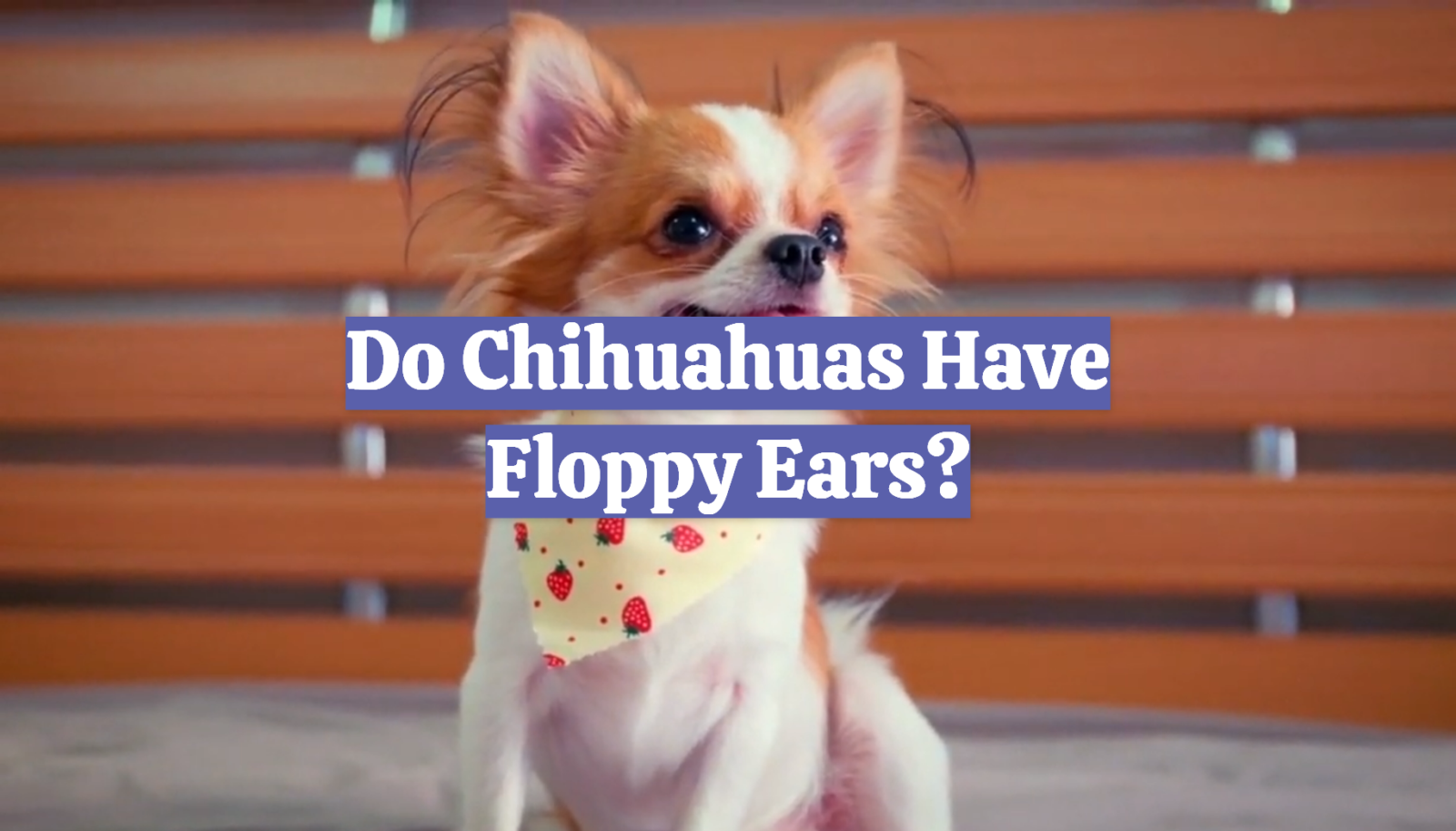
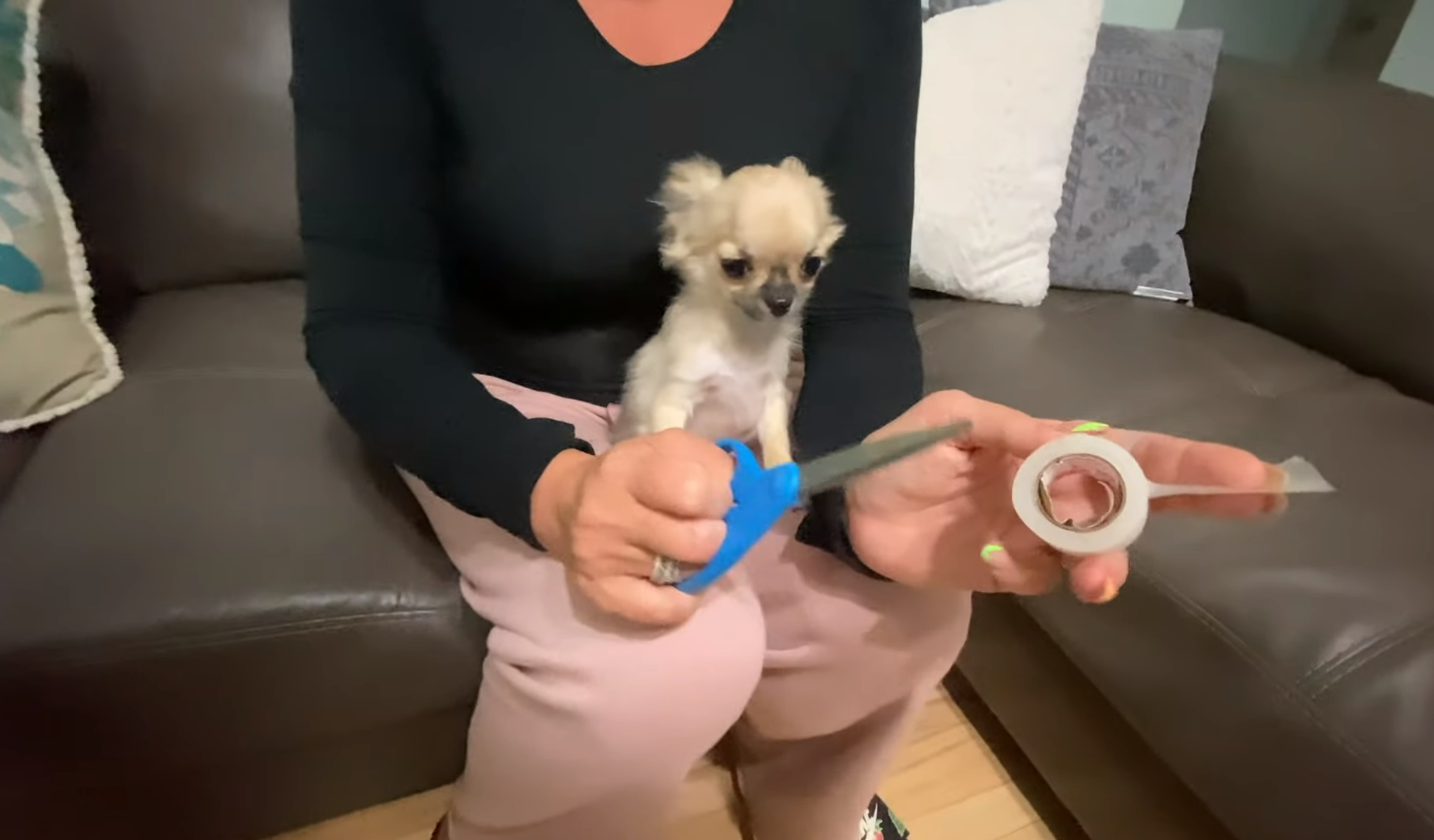




Leave a Reply